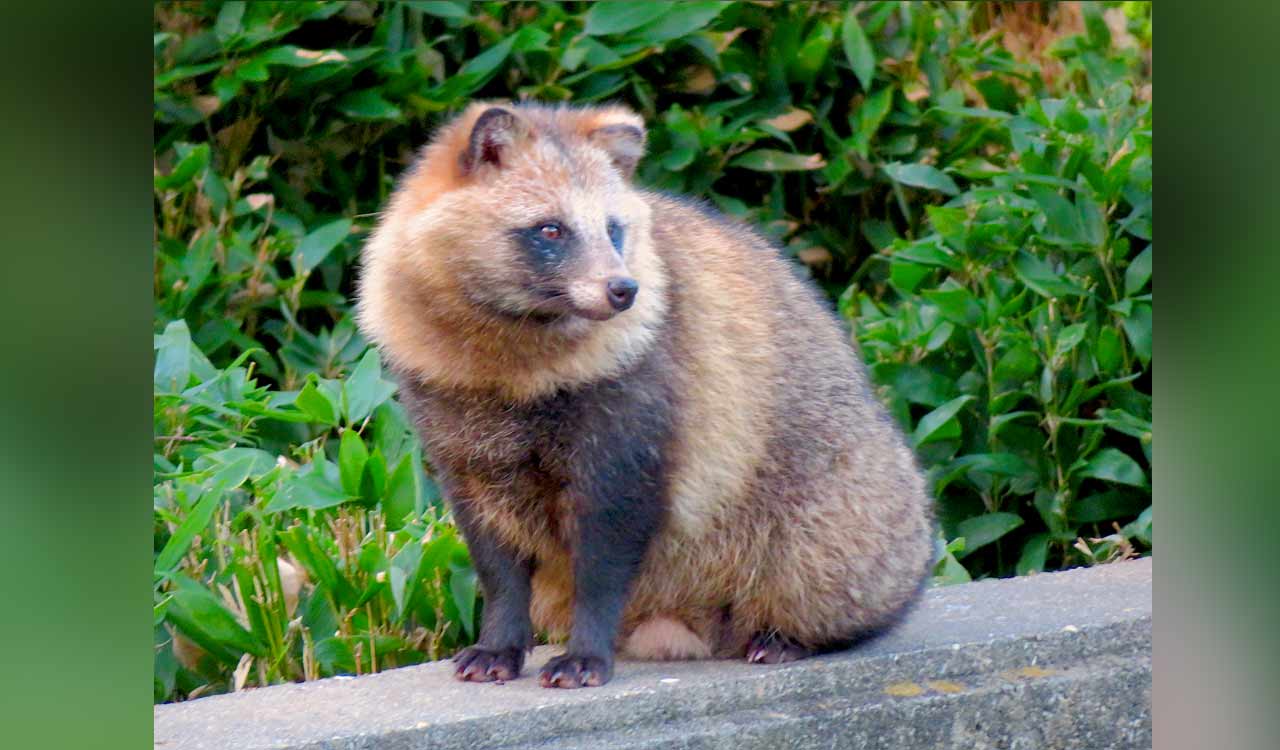New COVID origins data point to raccoon dogs in China market
Wuhan is home to several labs involved in collecting and studying coronaviruses, fueling theories scientists say are plausible that the virus may have leaked from one.

Beijing: Genetic material collected at a Chinese market near where the first human cases of COVID-19 were identified show raccoon dog DNA commingled with the virus, adding evidence to the theory that the virus originated from animals, not from a lab, international experts say.
“These data do not provide a definitive answer to how the pandemic began, but every piece of data is important to moving us closer to that answer,” World Health Organization Director-General Tedros Adhanom Ghebreyesus said Friday.
Also Read
How the coronavirus emerged remains unclear. Many scientists believe it most likely jumped from animals to people, as many other viruses have in the past, at a wildlife market in Wuhan, China. But Wuhan is home to several labs involved in collecting and studying coronaviruses, fueling theories scientists say are plausible that the virus may have leaked from one.
The new findings do not settle the question, and they have not been formally reviewed by other experts or published in a peer-reviewed journal.
Tedros criticized China for not sharing the genetic information earlier, telling a press briefing that “this data could have and should have been shared three years ago.” The samples were collected from surfaces at the Huanan seafood market in early 2020 in Wuhan, where the first human cases of COVID-19 were found in late 2019.
Tedros said the genetic sequences were recently uploaded to the world’s biggest public virus database by scientists at the Chinese Center for Disease Control and Prevention.
They were then removed, but not before a French biologist spotted the information by chance and shared it with a group of scientists based outside China that’s looking into the origins of the coronavirus.
The data show that some of the COVID-positive samples collected from a stall known to be involved in the wildlife trade also contained raccoon dog genes, indicating the animals may have been infected by the virus, according to the scientists. Their analysis was first reported in The Atlantic.
“There’s a good chance that the animals that deposited that DNA also deposited the virus,” said Stephen Goldstein, a virologist at the University of Utah who was involved in analysing the data. “If you were to go and do environmental sampling in the aftermath of a zoonotic spillover event … this is basically exactly what you would expect to find.” The canines, named for their raccoon-like faces, are often bred for their fur and sold for meat in animal markets across China.
Ray Yip, an epidemiologist and founding member of the U.S. Centers for Disease Control office in China, said the findings are significant, even though they aren’t definitive.
“The market environmental sampling data published by China CDC is by far the strongest evidence to support animal origins,” Yip told the AP in an email. He was not connected to the new analysis.
WHO’s COVID-19 technical lead, Maria Van Kerkhove cautioned that the analysis did not find the virus within any animal, nor did it find any hard evidence that any animals infected humans.
“What this does provide is clues to help us understand what may have happened,” she said. The international group also told WHO they found DNA from other animals as well as raccoon dogs in the samples from the seafood market, she added.
The coronavirus’ genetic code is strikingly similar to that of bat coronaviruses, and many scientists suspect COVID-19 jumped into humans either directly from a bat or via an intermediary animal like pangolins, ferrets or racoon dogs.
Efforts to determine the origins of the COVID-19 pandemic have been complicated by factors including the massive surge of human infections in the pandemic’s first two years and an increasingly bitter political dispute.
It took virus experts more than a dozen years to pinpoint the animal origin of SARS, a related virus.
Goldstein and his colleagues say their analysis is the first solid indication that there may have been wildlife infected with the coronavirus at the market. But it is also possible that humans brought the virus to the market and infected the raccoon dogs, or that infected humans simply happened to leave traces of the virus near the animals.
After scientists in the group contacted the China CDC, they say, the sequences were removed from the global virus database. Researchers are puzzled as to why data on the samples collected over three years ago wasn’t made public sooner. Tedros has pleaded with China to share more of its COVID-19 research data.
Gao Fu, the former head of the Chinese CDC and lead author of the Chinese paper, didn’t immediately respond to an Associated Press email requesting comment. But he told Science magazine the sequences are “nothing new. It had been known there was illegal animal dealing and this is why the market was immediately shut down.” Goldstein said his group presented its findings this week to a WHO advisory panel investigating COVID-19’s origins.
Michael Imperiale of the University of Michigan, a microbiology and immunology expert who was not involved in the data analysis, said finding a sample with sequences from the virus and a raccoon dog “places the virus and the dog in very close proximity. But it doesn’t necessarily say that the dog was infected with the virus; it just says that they were in the same very small area.” He said the bulk of the scientific evidence at this point supports a natural exposure at the market, and pointed to research published last summer showing the market was likely the early epicentre of the scourge and concluding that the virus spilled from animals into people two separate times. “What’s the chance that there were two different lab leaks?” he asked.
Mark Woolhouse, an infectious diseases expert at the University of Edinburgh, said it will be crucial to see how the raccoon dogs’ genetic sequences match up to what’s known about the historic evolution of the COVID-19 virus. If the dogs are shown to have COVID and those viruses prove to have earlier origins than the ones that infected people, “that’s probably as good evidence as we can expect to get that this was a spillover event in the market.” After a weeks-long visit to China to study the pandemic’s origins, WHO released a report in 2021 concluding that COVID-19 most probably jumped into humans from animals, dismissing the possibility of a lab origin as “extremely unlikely.” But the U.N. health agency backtracked the following year, saying “key pieces of data” were still missing. And Tedros has said all hypotheses remain on the table.
The China CDC scientists who previously analysed the Huanan market samples published a paper as a preprint in February suggesting that humans brought the virus to the market, not animals, implying that the virus originated elsewhere. Their paper didn’t mention that animal genes were found in the samples that tested positive.
In February, the Wall Street Journal reported that the U.S. Department of Energy had assessed “with low confidence” that the virus had leaked from a lab. But others in the U.S. intelligence community disagree, believing it more likely it first came from animals.
Experts say the true origin of the pandemic may not be known for many years — if ever.
Related News
-
Speaker concludes hearing on disqualification petition against Danam Nagender
4 mins ago -
Consumers’ body wants BIS Standards Clubs set up in schools, colleges in Telangana
5 mins ago -
Telangana’s finances struggle over weak revenues and mounting debts
9 mins ago -
IIT Hyderabad to host MSME Tech Connect 2026
10 mins ago -
Khammam, Warangal police excel in Telangana Police Sports and Games Meet
29 mins ago -
GHMC launches MyCURE app for faster civic grievance redressal
32 mins ago -
KCR extends Ramzan greetings on Ramzan commencement
56 mins ago -
Traffic diversions announced for Chatrapathi Shivaji Jayanthi procession in Hyderabad
56 mins ago




